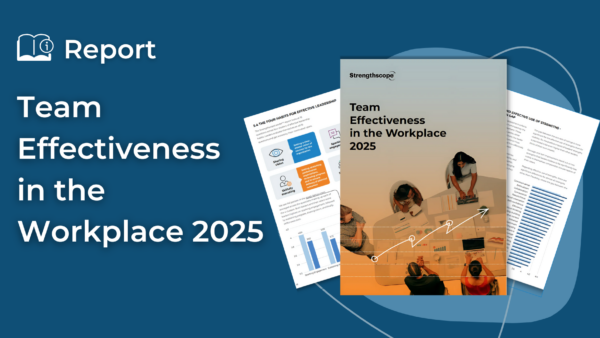Many leaders we talk to are feeling overwhelmed, stressed and frustrated with their workloads and constant change. They take on too much, work too hard and end up feeling burnt out. The impact of this doesn’t only damage their physical and psychological wellbeing, but undermines the effective functioning of their organisation and family. For example, recent research has found that erratic and disruptive behaviour at work can be caused by sleep deprivation. There are also a growing number of family breakdowns caused by overwork and absence from home. So what can leaders do to avoid feeling overwhelmed and manage themselves and their energy more effectively?
1. Avoid the Busy Trap
Everyday, we hear people telling us just how busy they are: “manic”, “crazy busy” and “too busy to meet” are frequent responses when you ask people how they are doing. Modern society reinforces a flawed assumption that if you’re busy, you are successful and are achieving a lot. However, this assumption often doesn’t hold true and suggests a growing problem – we associate filling up our waking time and busyness with achievement and as a result, end up taking on too much. This is driven by pressures of multi-tasking and the perceived need to always be online and connected, but also by our fears of being seen as idle and non-essential, especially in an employment market characterised by constant reorganisation and job cuts.
As pointed out by Tim Kreider in a 2012 New York times article, this busyness and associated exhaustion is “…not a necessary and inevitable condition of life; it’s something we’ve chosen, if only by our acquiescence to it.”
Leaders should therefore take time to review how they are spending their time to evaluate how much of their busyness actually contributes to positive results at work and their wellbeing and happiness outside work. By identifying time stealers and low-value activities, leaders can free up more time for high-value tasks and ensure better balance between work and home life. For example, you could ask whether spending two hours online on Facebook or Linked every day is simply helping you feel busy and valued or is really moving you closer to your career and life goals.
2. Manage your energy as well as your time
With the growing pace and complexity of work, every leader needs some downtime to remain productive. A growing number of well publicized cases of executive burnout have highlighted the futility of a ‘working till you drop’ attitude. Like pro athletes, leaders need to be better at disconnecting and planning in breaks to re-energise and recover, especially after highly stressful periods at work. Those with an overly well-developed sense of responsibility or a resilience strength might struggle with this principle as they assume they can go on forever without a break and take on ever greater workloads and challenges. However, we are all human and need rest periods to refuel. The rule of thumb we should apply is that the more energy we expend at work, the longer the periods of rest and recovery we need. Therefore, don’t be afraid to take your full entitlement of holidays and build in other ways to recover like protecting your lunch break, meditation, brisk walks during the day, disconnecting when you get home, etc. Creating clear boundaries around your working day and week and protecting time outside work will help you maintain high levels of energy. For example, some leaders I know have decided to boundary their weekends for family time and personal hobbies whereas others leave work on time (or even early) a couple of days a week to spend time with their family.
In a fast moving, competitive and increasingly global world, many leaders are getting by with very little sleep. However, managing your energy effectively also means getting at least 7-8 hours’ sleep a night. Recent research has shown that leaders who are sleep deprived are less productive than those who get adequate sleep and are also more argumentative and less capable of solving complex problems. Sleep deprivation is also associated with increased levels of illness and accidents both on and off the job. Therefore, those working in high risk environments such as heavy manufacturing, oil and gas or construction should be particularly alert to the dangers of exhaustion and fatigue.
Finally, leaders should take time to spot actions and tasks that deplete and top up not only their own energy, but also that of their team members. By asking the team about energy ‘drainers’ and ‘boosters’ on a regular basis and taking action to manage energy better, leaders will be able to create a more energised and productive environment.
3. Plan, Do, Review
Taking control of your productive time means spending time planning and reviewing it. We recommend a simple 3 step approach:
Plan what you intend doing by making a list of prioritized actions for the next day (and/or week) beforehand. Having specific goals and tasks will keep you focused and motivated, especially when work pressures mount. I tend to do this as a pre-bed ritual, as I am not a naturally efficient person and if I left it to the morning, it wouldn’t happen. Build in some buffer time to deal with those inevitable urgent items that arise most weeks, as well as distraction-free time for complex and time-consuming tasks.
Do what you have planned on your list, ensuring you prioritize the top items of your list to do first thing in the morning when you are still fresh and energy levels are higher. Try to cut down on multi-tasking as recent research shows that our brains are not good at managing simultaneous tasks at the same time; focus on one task or problem at a time.
Review what you have achieved during the day every evening, including the biggest success you’ve had, as well as any items that need to be carried over to the following day. Reviewing your successes and achievements from the day will fuel your energy and keep you motivated during the week.
4. Keep the in-box under control
In-boxes are a bit like Pufferfish – they grow at an alarming speed and become so spiky and unmanageable that they overwhelm us and become toxic for our levels of energy.
We suggest a simple 3 step process based on the excellent guidance of best-selling author and productivity guru David Allen:
Dump it: a significant amount of email traffic nowadays comprises rubbish or irrelevant correspondence. I recommend deleting these items as soon as you’ve scanned them.
Do it: emails that aren’t rubbish or irrelevant should be dealt with immediately or filed into a “To Do” folder. There are a variety of online productivity tools and mobile apps to help you spot and sort these important emails including filtering out junk mail and colour coding emails from key stakeholders like customers or your manager.
Delegate it: many emails can be delegated to team members (or other co-workers) who are better placed to deal with these by virtue of their natural strengths or desire to grow and progress. Challenge yourself to delegate as much as possible to stretch your team and avoid getting overwhelmed in work they could be doing.
5. Break down complex tasks
Complex and ambiguous tasks are particularly challenging. To avoid them overwhelming you, I suggest breaking them into smaller, more manageable goals and parts. Define what you need to achieve within one week, two weeks and so on and who can help in areas where we don’t have natural strengths and energy. This will boost your motivation and enable you to achieve the best possible result. If you need inspiration on how to do this, check out the inspirational climbing movie, Touching the Void, a true story set in the Andes about a climber, Joe Simpson, who falls into a deep crevasse after his climbing companion is forced to cut the climbing rope to save himself. Against all odds, Simpson manages to climb out of the crevasse with a broken leg and make his way (by crawling and hopping) back to camp across a glacier, a five mile journey which takes him three days without food and with very little water. Watch it and you’ll never think complex tasks are unmanageable again!
6. Call on others for help
“Collaboration” is becoming the latest buzz word in organisations everywhere, yet in our increasingly self-absorbed and multi-tasking society, leaders are often not executing on a fundamental principle of collaboration – calling on others for help. This is particularly ironic when there are a proliferation of online platforms and solutions designed to open up opportunities for support from a diverse range of people and communities. Leaders need to challenge any limiting assumptions they have about the benefits of being self-reliant and learn to call on others for help and support, especially in areas where work is complex and potentially overwhelming. An obvious starting point is for leaders to expand and leverage their immediate network of co-workers, friends and family better. However, leaders should also build their networks (including virtual communities like Linked In) in a purposeful and proactive manner. This involves going beyond simply adding contacts and endorsing people to reaching out to those that can provide help and support in areas of skills and experience where you are less strong.
7. Don’t procrastinate
Procrastination of tasks we don’t like doing or those we regard as very complex is a bad habit many leaders develop over time. This sub-conscious avoidance technique provides short term relief, but leaders soon realise they are only deceiving themselves as they end up with piles of work that drains their energy, making them feel even more anxious and overwhelmed. To avoid procrastination, we recommend you:
i. Create a to-do list, ensuring you finish the complex tasks you dislike first, ideally first thing in the morning when we’re feeling most alert and focused.
ii. Break task you dislike into smaller daily chunks (e.g., 15 minute ‘sprints’) to make them more manageable.
iii. Commit to others when you will complete the task and ask them to hold you to account for on-time delivery of the work.
iv. Avoid unnecessary distractions and interruptions by blocking out time in the day to deal with tasks that require focused attention.
v. Stop looking for a perfect solution. Perfectionism is one of the biggest causes of procrastination.
vi. Call on someone who can help you, especially if the task involves something you aren’t naturally energised by.
vii. Reframe the work to link it to goals that are meaningful and attractive to you. For example, it you are procrastinating a presentation you need to prepare, think about how it might help you gain more support in the business for an enjoyable project you need more funding for.
viii. Spend time reflecting on how you feel once you’ve achieved your goal. Research shows that that hitting a goal releases hormones in the brain that give you pleasure. You may also want to give yourself a small reward (e.g., favourite snack, items of clothing, new gadget, etc.) for particularly tough tasks to reinforce the sense of accomplishment and behaviours that helped you succeed.
8. Role model productive and responsible behaviours
Leaders are not only responsible for managing their own time, energy and productivity, but also that of their team members. They should therefore be conscious of the example they are setting for others in the organisation, ensuring they communicate the principles and techniques outlined in this article to their team and practice what they preach. If leaders are sending emails to staff when on holiday or working through weekends on a regular basis, team members (particularly those with less experience) will assume they are expected to do the same. However, if you are exemplifying productive work habits and good work life balance, it is likely that employees will follow suit. It is also crucial to spot early signs that staff may be feeling unhappy or overwhelmed such as increased absenteeism, procrastination, dips in productivity, etc. If you suspect that the person is feeling anxious and overly stressed, speak to them early to avoid the situation escalating.
Research and our decades of experience coaching and developing leaders show that managers who learn to effectively manage their time and energy at work can be more productive, energised and happy at work and at home. They also lead teams who are happier and perform better than teams led by energy-sapping workaholics who drive people to burnout, despair and resignation. By implementing these eight principles, leaders will ensure they are working smart and building productive and positive teams capable of delivering extraordinary results.
James Brook
Recommended Reading
Allen, D. (2015). Getting Things Done: the art of stress-free productivity. London: Piatkus Books.
Kreider, T. (2012). The “busy” trap. Opinionator Blog. Published online June 30, 2012. http://opinionator.blogs.nytimes.com/2012/06/30/the-busy-trap.
Loehr, J. and Schwartz, T. (2003). The Power of Full Engagement. New York: The Free Press.










